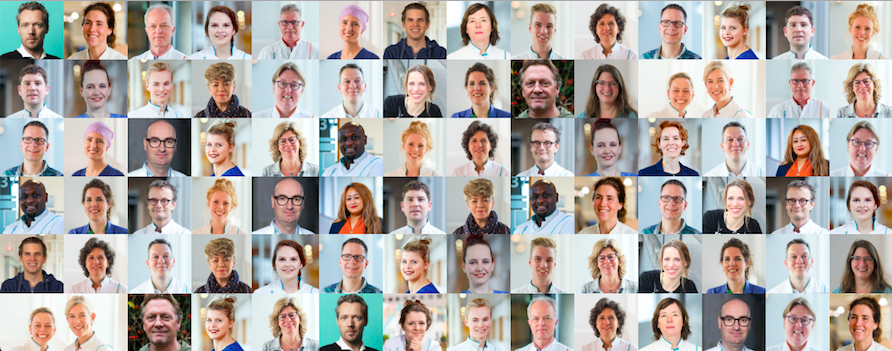Postdoc 'Genetic and MRI Determinants of Long-term Trajectories of ADHD'
Postdoc 'Genetic and MRI Determinants of Long-term Trajectories of ADHD'
You cannot apply for this job anymore (deadline was 15 Jan 2018).
Browse the current job offers or choose an item in the top navigation above.
Job description
This year, worldwide consortia presented the first genome-wide significant loci associated with attention-deficit/hyperactivity disorder (ADHD, Demontis et al., In Press). Similarly, large-scale MRI studies are providing systematic links between functional and anatomical brain features and ADHD (e.g. Hoogman et al., 2017, Lancet Psychiatry). These recent advances open new doors into understanding the genetic architecture of ADHD and the biological pathways underlying ADHD onset and persistence. In this project, we use in vivo MRI and genomic data to further characterize these gene-brain-behaviour relationships, and how they change over time. Given our longitudinal design, we focus on mechanisms of course of illness and symptom remission over time, with the ultimate goals to identify predictors and mediators of remission and persistence of ADHD between childhood and adulthood.
This is an interdisciplinary project integrating genetics, neuroimaging, and psychiatry, that offers ample opportunities for methods development, novel approaches in statistics, and expansion into future study design. Planned analyses include the construction of novel polygenic risk profiles by integrating data from the latest ADHD consortia with the local longitudinal cohort data.
On the MRI side, the successful candidate will have access to high-quality neuroanatomical, diffusion-weighted, functional MRI data. Moreover, we are acquiring quantitative T1 maps using 7 Tesla MRI at exceptional spatial resolutions, which uniquely allow the quantification of cortical myelin concentration, and which provide ample opportunities for innovation at the forefront of MRI research.
The candidate will collaborate intensively across the Departments of Human Genetics and Cognitive Neuroscience of the Radboudumc. The candidate will be expected to write scientific articles and give presentations locally and at international conferences, and to think along about funding opportunities and avenues for future research. In general, the successful candidate will be encouraged to think independently of ways to analyze and interpret the acquired data, and will be supported in making progress towards an independent scientific career.
Specifications
- 28.8—36 hours per week
- Nijmegen View on Google Maps
Requirements
Essential:
- A PhD in the field of human genetics, cognitive neuroscience, biostatistics, biomedical engineering, biological psychiatry, or similar;
- A competitive CV that indicates the potential to attract personal funding in the near future;
- At least 1 published (or in press) peer-reviewed paper as 1st author;
- Strong experience with either MRI analysis or genomics, evident affinity with the other;
- Documented experience with at least one programming language (bash, R, python, matlab);
- An excellent understanding of statistics;
- A good command of written and spoken English;
- Good social skills and team spirit; e.g. you will take an active role in the co-supervision of a PhD student;
- Enthusiastic, and motivated by curiosity and the potential to make an impact on the lives of patients;
- You recognise yourself in the Radboud way of working.
Highly desirable:
- Documented experience with both imaging and genetic analysis;
- Formal programming skills;
- Experience with large-scale data-analysis, multivariate analysis, or machine learning.
Conditions of employment
Fixed-term contract: 3 years.
Scale 10: max €58838 gross per year at full employment (incl. vacation bonus and end of year payments)
Employer
Radboudumc (university medical center)
Radboudumc strives to be a leading developer of sustainable, innovative and affordable healthcare to improve the health and wellbeing of people and society in the Netherlands and beyond. This is the core of our mission: To have a significant impact on healthcare. To get a better picture of what this entails, check out our strategy film.
Our key strength is medical life-sciences and clinical practice, with an impressive infrastructure comprising state-of-the-art technology platforms and (translational) research facilities. The Radboudumc is therefore uniquely positioned in the emerging Euregio and Dutch healthcare infrastructure to play a leading role in the new healthcare paradigm of prediction, prevention and personalised medicine.
The Radboudumc focuses on scientific health challenges of today, with an eye on emerging diseases of the future.
Read more about what it means to work at Radboudumc and how you can do your part.
Department
The successful candidate will be based at the Donders Institute for Brain Cognition and Behaviour at the Radboudumc in Nijmegen, The Netherlands. The Donders Institute focuses on state-of-the-art cognitive neuroscience, and offers excellent lab and neuroimaging facilities fully embedded in a clinical research environment. English is the lingua franca at the Donders Institute.
You will join the research group of Dr. Emma Sprooten, currently consisting of a research assistant and a PhD student, all working on the DELTA project funded by a Radboudumc Hypatia grant. You will also be part of the larger group of Prof. Christian Beckmann (MRI-stats group), and work in close collaboration with the Department of Human Genetics led by Prof. Barbara Franke.
Radboudumc
Radboudumc strives to be a leading developer of sustainable, innovative and affordable healthcare to improve the health and wellbeing of people and society in the Netherlands and beyond. This is the core of our mission: To have a significant impact on healthcare. To get a better picture of what this entails, check out our strategy film.
Read more about what it means to work at Radboudumc and how you can do your part.
Specifications
- Postdoc
- Natural sciences; Health
- 28.8—36 hours per week
- Doctorate
:fill(white)/logos/umcr-en-wide.png)
